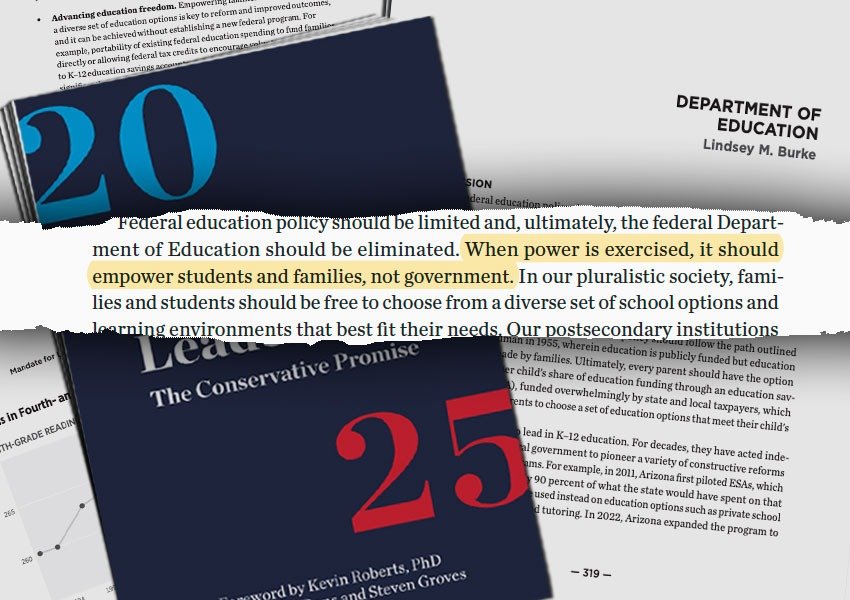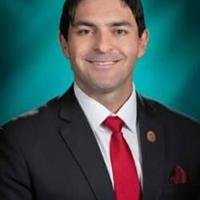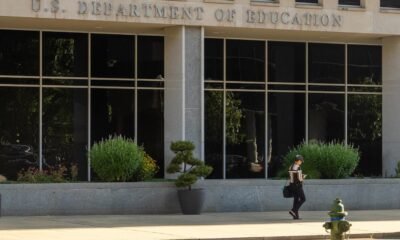2024 election
Contentious ‘Project 2025’ Plan Sparks Debate with Arizona’s Education Blueprint

Project 2025, a controversial plan for the next Republican presidency, aims to centralize power in the White House and overhaul the federal government across numerous sectors.
In the realm of public education reform, the plan draws heavily from Arizona’s approach.
The “Mandate for Leadership” is a nearly 900-page document created by the Heritage Foundation and other conservative organizations. It proposes dismantling the federal Department of Education, reevaluating funding for low-income and disabled students, and redirecting public school funds to alternatives such as private schools and homeschooling.
Advocating for universal school choice, the document insists that parents should be able to use education savings accounts (ESAs) to direct their child’s share of education funding, predominantly funded by state and local taxes.
This model aligns with Arizona’s school voucher system, the first in the nation to offer universal voucher eligibility. Heritage Foundation’s education policy expert Lindsey Burke, who authored the report’s education section, quickly points to Arizona as a pioneer in school choice.
Burke also suggests changes to the Individuals with Disabilities Education Act to redirect funding to families instead of schools, citing Arizona and Florida as successful examples. Additionally, she supports a funding model where donors receive tax credits for contributing to nonprofits that provide private school scholarships, similar to Arizona’s School Tuition Organizations (STOs).
The Heritage Foundation’s representatives, using terms like “freedom” and “choice,” advocate for an education landscape allowing parents to choose the best education options for their children. However, education policy experts warn that the plan might underfund public schools and concentrate higher-need students in these institutions.
“The implications for students, public schools, and their communities could be devastating,” stated Jessica Levin, litigation director at the Education Law Center. “Arizona serves as a prime example.”
In 1994, Arizona’s school choice journey began with legislation that permitted charter schools. By 2006, a school voucher system for students with disabilities and those in foster care was established, which the Arizona Supreme Court later ruled unconstitutional.
Arizona then introduced the “Empowerment Scholarship Account” in 2011, reallocating funds to public school alternatives and expanding eligibility over time.
Today, Arizona leads the country with the highest percentage of charter school students, with STOs generating hundreds of millions annually and the universal voucher program enrolling nearly 75,000 students, costing over $700 million.
Despite these initiatives, Arizona ranks 49th nationally in public school funding.
From 2008 to 2019, a Columbia University study found a 5.7% decline in per-pupil public school spending in Arizona, even as enrollment increased, while spending on voucher and tax-credit programs surged by 270%.
“Arizona has consistently neglected to establish quality public schools, thus forcing families to seek other options,” said University of South Carolina Professor Derek Black.
Organizations like the American Federation for Children and Americans for Prosperity have used Arizona as a model to push for school choice expansions nationwide.
The Goldwater Institute, a key player in Arizona’s ESA program, aims to extend school choice to every state but declined to discuss the implications of Project 2025’s proposals.
Supporters of school choice claim it allows parents to opt out of underperforming public schools in favor of private options that better suit their children’s needs.
The dissatisfaction with public school responses to the COVID-19 pandemic and ongoing cultural debates over race, gender, and sexuality have fueled this argument. Despite this, voters have consistently rejected major voucher expansions when put to a public vote.
Project 2025 envisions an educational marketplace controlled by parents, claiming schools should serve parents, not vice versa.
While some parents have successfully used vouchers to find tailored educational settings for their children, especially those with disabilities, private schools are selective in their admissions, which can exclude families seeking these vouchers.
As a result, Arizona parents using vouchers for disabled children often face challenges finding suitable placements and lose certain legal protections offered in public schools.
Over two-thirds of the vouchers have gone to families previously covering private school costs, contradicting claims that ESAs would save the state money and instead contributing to a significant budget deficit.
There is also a lack of performance data for students using vouchers, raising concerns about accountability and transparency. Without standardized assessments or reported outcomes, it’s difficult to evaluate the effectiveness of these programs.
Experts worry about the equity implications of nationalizing such voucher programs. With diminished public school funding, families with resources will likely leave, further segregating the education system by socioeconomic status.
Project 2025’s suggestion to phase out Title I funding, intended to help poorer schools, could worsen these disparities.
This fragmented system could undermine the American public education tradition designed to unify children of all backgrounds and promote an informed citizenry, according to Black.
“The proponents of these policies either overlook or dismiss the long-standing commitment to public education, crucial for democracy,” he said. “The future of America depends on how we approach these reforms.”
This article first appeared on Arizona Center for Investigative Reporting and is republished here under a Creative Commons license.


















